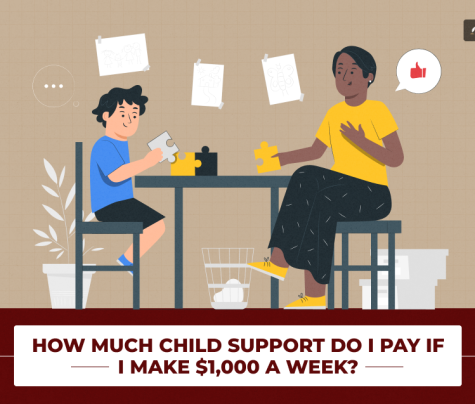
The role of custody lawyers in divorce is crucial when parents decide to separate and need to figure out who will take care of the children.
It’s always tough to bring kids into the mix when couples go on divorce. The process not only brings emotional strain but also generates legal responsibilities. A child custody lawyer becomes indispensable in such a scenario.
This kind of a lawyer is the one responsible for the legal side of the issue and the parents the understanding of their rights and obligations. These attorneys walk you through legal mazes and make sure that they advocate for your child’s best interests.
Hi. In today’s blog, I will be talking about how custody lawyers help during divorce. Additionally, I will also explain what you can expect from them and what you should consider when hiring one.
So, if that is what you want to know, keep on reading this blog till the end, and thank me later…
What is the Role of Custody Lawyers in Divorce?

The lawyers for child custody are attorneys who are experts in the field of family law who deal with cases where the mother and father need to decide on the care of the children after a divorce.
Their responsibility involves not only representing the client but also providing support and guidance through every step of the process of getting custody of the child.
This consists of working on:
- Custody agreements.
- The negotiation of terms.
- Representation of clients in court.
- Ensuring that the welfare of the child is their primary concern.
They are also available to mediate disputes and provide advice on necessary changes after the divorce is finalized.
Finally, one of the major roles of the attorneys for child custody is that they make the entire procedure more manageable and more orderly for all, especially for the kids.
Initial Consultation with a Custody Lawyer
The first step in working with a custody lawyer is the initial consultation. This meeting allows the lawyer to understand your unique situation and your goals regarding custody.
They will ask you a lot of questions about your:
- Relationship with your child.
- Current living situation.
- Concerns about the other parent.
It’s a safe space to share any worries, such as abuse, neglect, or other serious issues. The lawyer will also explain the types of custody (like joint custody or sole custody). Apart from that, they will explain the process that lies ahead.
You can ask questions and understand what to expect in terms of time, cost, and legal procedures. This consultation helps set the direction for your custody case.
Developing a Custody Plan
Once the lawyer gets familiar with the details of the case, the next part is to make a custody plan.
This document clearly states what both parents agree to and how decisions about the child will be taken, and also describes such important matters like school, healthcare, and holidays.
An ideal custody plan should be very specific but also capable of having changes later on. Your lawyer who knows your child well will prepare a plan for you that can simply cater to your child and be the most comfortable for your current status.
The parents’ signatures will make the plan legal to be sent to the court. In the case of disagreement, the attorney will stand in between to reach an agreement. The key aim is to minimize the child’s disturbances in having a stable life during and after the divorce.
Legal Representation and Negotiation
One of the vital responsibilities of a custody lawyer is indeed to ensure your legal rights are well-represented during the negotiation process.
Not every conflict related to child custody needs to be resolved in the courtroom. Very often, the parents can resolve their differences through mediation or without any intervention.
Your attorney will act as your mouthpiece. They will see to it that you get equal opportunity to state your case. They will not let the tension overwhelm you and will, at the same time, be concerned about your child’s welfare the most.
If a lawyer represents the other parent, then the different lawyers can cause difficulties in negotiations. However, you should rest assured as your lawyer is at your side shielding you. They will be working for your rights.
They will try to end the fight without any harm or unfairness in your regard and take the position that is honest. Remember, all these attorneys’ behavior and forms must follow the principles of the attorney-client privilege.
Court Hearings and Final Custody Orders
If parents can’t seem to find a common ground regarding custody matters, the matter will end up being taken to the court and the judge will have the final say. This would be the time when your custody lawyer becomes the most important aspect of the case.
The lawyer will collect all evidence, call witnesses (if necessary), and present the case to the judge. Besides, they will cross-examine the other parent and answer any allegations made against you.
Even though courtroom trials are very tense, a well-practiced lawyer can ease the situation. When the judge is done with the case, the final custody order is issued.
This is a document that is legally binding and is necessary to be observed by both parents. Your lawyer will go through the order with you and explain your daily life with your child.
Post-Divorce Custody Modifications
Life changes after the divorce. You may move to a different city, have a job relocation, or face other changes that make it difficult to abide by the original custody order. In such cases, you may go to the court and request a modification.
A custody lawyer can help you with all that. They will listen to your situation and place a request to the court to change the custody terms. They will also act as your representative in court and justify the need for the changes.
The judge’s only mandate is to allow a change if it is in the best interests of the child. If you are seeking a change or defending one, your lawyer will be there to make it more fair for your child.
What Factors Does a Judge Consider When Making a Custody Determination?
One of the most important things for judge to consider when choosing the best parent for a child to stay with is to consider the child’s welfare.
The whole situation is considered before a decision is made by weighing up various factors:
- Child’s age and needs: If the child is young, then his needs will be more hence he will need more time and care. But the older age of the child may mean that he has expressed his wish for one of the parents as the place where he lives.
- Each parent’s ability to provide: This includes the financial aspect, housing stability, and the emotional side of support.
- Relationship with the child: The parent’s relation with the child is a very very critical part. The stronger the relationship the parents have with the child, the more it counts.
- Parental behavior: The fact that the parent might have a history of domestic violence, drug or alcohol abuse, or neglect will be a major aspect that the judge will consider.
- Mental and physical health: The parent’s mental health and physical health are the determining factors in their ability to take care of the child.
- Stability of environment: The court signalizes the environment consistency of the kid. At the same time, they also pinpoint the school and the daily routine of the child as a major point.
- Willingness to cooperate: Judges do not go hard on parents who still want to work together and who at the very least give a green light to the child’s relationship with the other parent.
These factors enable the court to obtain the best environment which is where the child’s happiness, safety, and growth can be found.
Things to Keep In Mind When Choosing a Custody Lawyer
One of the most significant factors that can influence the outcome of your divorce and custody case is choosing a competent custody lawyer. The following are a few aspects that should be kept in view:
- Experience is very important.
- Clear communication.
- Empathetic and supportive.
- Great negotiation skills.
- Availability.
In conclusion, no one likes fighting for child custody. However, with the right attorney, it becomes just a bit more bearable, especially as you are asked to make some of life’s most difficult decisions on behalf of your child.
You may take as much time as you need, ask questions, and select the very person that you would feel safe with. Your child’s well-being is irreplaceable.
Read Also:
- The Cheapest Way to Get a Divorce With a Child
- Divorce Mediation vs Litigation: Which Is Right for You?
- Can You Get the Guardianship of a Child Without Going to Court?











0 Reply
No comments yet.